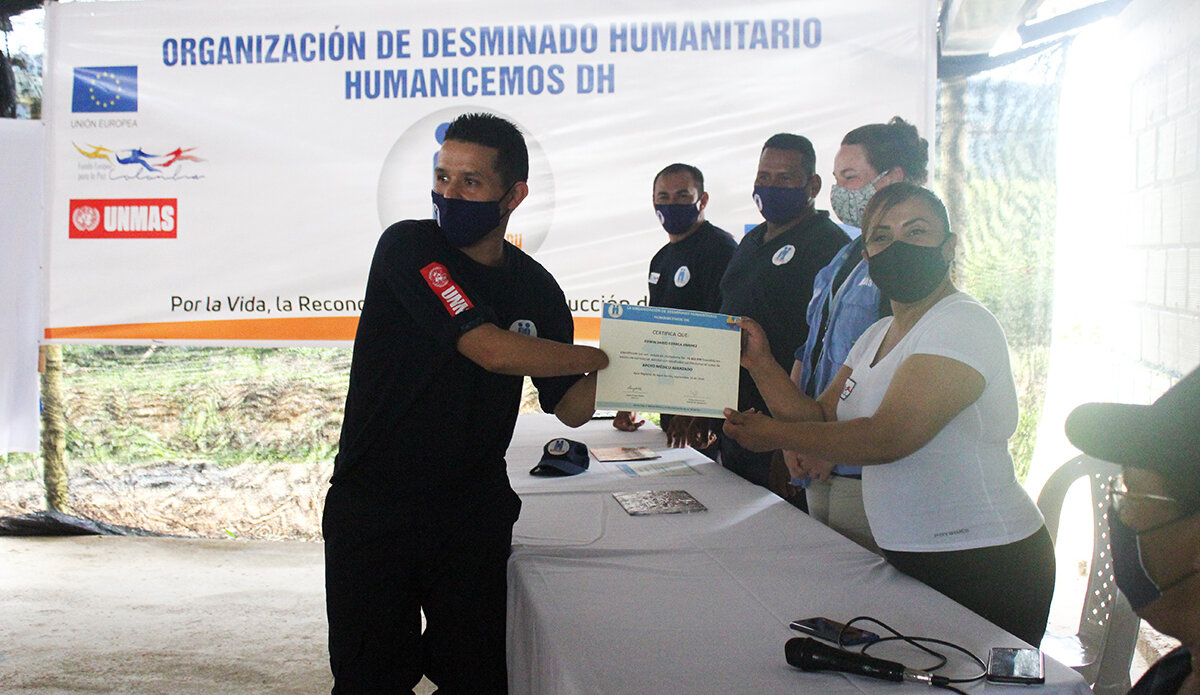It was the most traumatic experience I’ve ever had. In the middle of the conflict, one thinks that one is prepared to face an accident, to be in a hospital or in a jail, but when I lost my hands, everything changed. I just thought: what do I do now?” — Edwin Correa, ex-combatant with HUMANICEMOS DH.
Edwin Correa lost both his hands in 2003. Like many combatants of the Revolutionary Armed Forces of Colombia - People's Army (FARC-EP) guerrilla, he handled explosive ordnance in the context of the conflict. Due to inexperience and "overconfidence", one of these artifacts exploded in his hands.
After the accident, Edwin was taken to a hospital where his hands were amputated. There, he was identified, detained by the authorities, sentenced and imprisoned for three years. After being released, he chose to return to his comrades in arms. "I had all the solidarity of my colleagues who helped me adapt to this new life without hands," says Edwin. His challenge was to be independent again. Back in the FARC-EP, he had to relearn basic things like eating or dressing without help, all while surviving the onslaught of the conflict.
In November 2016, he was one of the more than 13,000 combatants of this guerrilla who accepted the Peace Accord signed with the Government of Colombia to initiate a process of reintegration into civilian life. After that historic collective decision, in 2017, Edwin joined HUMANICEMOS DH, the world's first mine action organization formed and led by ex-combatants. “I was motivated by the desire to learn new things, because although one had knowledge about explosives, the destruction of these artifacts is very different. I also saw it as a great opportunity for reconciliation with the communities,” he highlights.
After three years of training provided by UNMAS Colombia, in August 2020, Edwin became one of the first 17 ex-combatants certified by the national mine action authority to carry out humanitarian demining tasks
Training and working in the mine action sector has offered new opportunities and new perspectives on life for Edwin. “For me it is an immense joy to reach out to the communities and tell people that they will soon be able to recover their lands. The greatest satisfaction and reward is to see the people happy because they will no longer be afraid to walk through and work on those territories,” he adds with pride.
Although he considers the accident in which he lost his hands the most traumatic episode in his life, Edwin found a positive aspect to it. "Today I analyze: if it weren't for the accident, I might not be alive, because many of the colleagues with whom I shared missions died when I was hospitalized”, he says, while confessing another one of his ambitious dreams: make a career in mine action outside of Colombia.
“Every day I read about explosive ordnance risk education, non-technical surveys or explosive ordnance disposal and I am passionate about everything related to mine action. If I had the opportunity to take a course or work outside the country, it would be an immense joy,” he concludes.
Read in Spanish.

